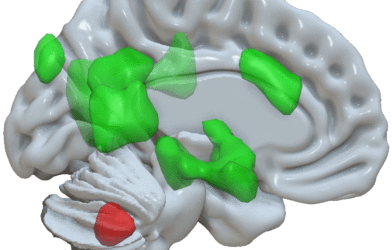Violent video games have often been criticized for potentially making players less empathetic and more aggressive, but the scientific evidence has been mixed. Now, a new study provides strong evidence that playing violent video games does not reduce empathy or emotional sensitivity to violence.
The study was conducted by researchers at the University of Vienna and the Karolinska Institute in Sweden. It tackled limitations of previous research by using a carefully controlled experimental design in people without prior violent video game experience.
The Experiment: Training With Violent vs Non-Violent Games
The researchers recruited 89 young adult males who reported barely or never playing violent video games. Over two weeks, one group played the extremely violent video game Grand Theft Auto V for seven one-hour sessions. They controlled a character equipped with weapons and were instructed to kill as many other in-game characters as possible. The violence was depicted realistically, with blood splatter and injury animations.
Meanwhile, a control group played a non-violent version of the same game for the same amount of time. Their character could not harm others, and all violent content was removed. They were given a non-violent task – taking photos of other characters.
Measuring Empathy and Emotional Reactivity Before and After
The participants underwent brain scanning (fMRI) while performing two tasks, once before their “video game training” period and once after:
Empathy for Pain Task: The men either received a painful electric shock themselves or watched a confederate receive it. They then rated how painful and unpleasant they found it. This tested their empathy for another person’s pain.
Emotional Reactivity Task: The men viewed violent and neutral images taken from real life or the video game. They then rated how unpleasant the images made them feel, which measured emotional sensitivity.

No Evidence That Violent Games Reduce Empathy
The ratings, as well as brain activity in regions involved in empathy, indicated no differences between the violent video game group and control group. Neither their empathy for pain nor their unpleasant reactions to violent images were reduced after playing the violent game for 7 hours.
The results imply that short and controlled exposure to violent video games does not numb empathy nor the responses to real-world violence.
“A few hours of video game violence have no significant influence on the empathy of mentally healthy adult test subjects,” explains lead author Lukas Lengersdorff, who carried out the study as part of his doctoral studies, in a statement. “We can clearly draw this conclusion. Our results thus contradict those of previous studies, in which negative effects were reported after just a few minutes of play.”
Cautions About the Findings
While promising, the study, published in the journal eLife, does have some limitations. The men only played for 7 hours, whereas hardcore gamers can play 10+ hours a week. The sample was also restricted to young adult males without prior violent video game experience or vulnerable traits.
The carefully controlled lab experiment likely does not capture real-world gaming experiences either. However, the findings help advance scientific understanding of VVGs’ emotional influences.
“Precisely because this is such a sensitive topic, we have to be very careful when interpreting these results,” says Lengersdorff. “The conclusion should not be that violent video games are now definitively proven to be harmless. Our study lacks the data to make such statements.”
Ongoing Controversy and Next Steps
This adds to another recent study finding no desensitization effects from a 2-month violent gaming intervention. But some previous research does suggest links to aggression. Clearly the impacts of media violence remain controversial.
“The most important question is of course: are children and young people also immune to violence in video games? The young brain is highly plastic, so repeated exposure to depictions of violence could have a much greater effect,” says research group leader and co-author Claus Lamm. “But of course these questions are difficult to investigate experimentally without running up against the limits of scientific ethics.”
While an absence of effects was shown here, the researchers stress that smaller influences on subgroups or different outcomes cannot be ruled out. Larger samples and designs bridging lab and real-world measures will shed more light. But this well-controlled experiment marks an important step toward elucidating the relationship between virtual violence and empathy.







-392x250.jpg)



